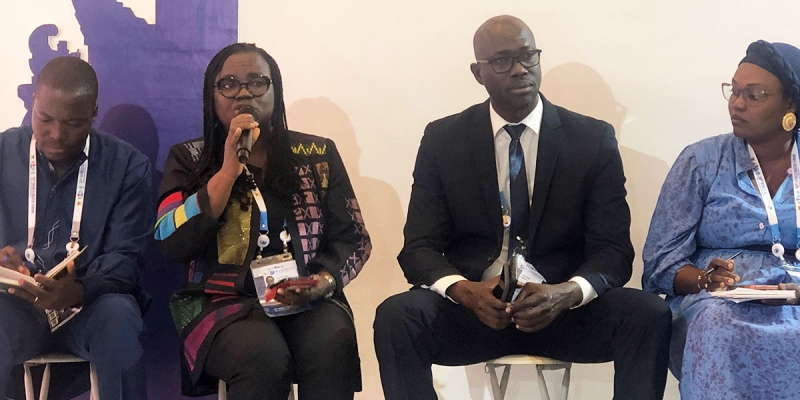As part of the 10th World Water Forum being held in Bali, Indonesia, Dr AcKUN Leticia, AfWASA's Gender Specialist, took part in a session on "Gender and access to EHA, what management and financing mechanisms to guarantee inclusion: the practical case of schools".
On this occasion, she emphasized the importance of gender mainstreaming both in designing EHA facilities and in school modules, as well as empowering young people through the creation of Water, Sanitation and Hygiene (WASH) clubs to reinforce their leadership and civic responsibility.
Several experts took part in the session.
Mr Harouna DERA, Sanitation Associate at Global Green Growth Institute (GGGI) Burkina Faso, presented the financing mechanisms put in place by GGGI to facilitate access to WASH facilities in public spaces (schools, stations, markets, etc.). A process that can be readapted to improve access to WASH services in schools.
Mr. Omar SENE, Director of Sanitation Senegal, presented the gender-sensitive toilets set up by the Sanitation Department as part of its WASH program in schools. These toilets are adapted for people with disabilities and girls and take Menstrual Hygiene Management into account in their design.
Ms Rouguiyatou Ba NIANG, Project Manager at EDE International and head of the sub-committee at Senegal Young Water and Sanitation Professionals Association (AJPEAS), talked about the mechanisms for managing WASH facilities in schools, and presented the biofilter toilets set up by the Association as part of the project to treat and reclaim sewage sludge in the Niayes wetlands.
Ms. Awa GUEYE, Water and Sanitation Engineer and Head of the sub-committee communication-marketing at AJPEAS, moderated the session and presented the "WASH SCHOOL" concept implemented by AJPEAS to improve access to WASH services in schools, while considering gender, circular economy, and environmental preservation aspects.
At the end of the session, the following points emerged:
- The importance of integrating gender and WASH concepts, as well as menstrual hygiene, into curricula to initiate younger students.
- Strengthening young people's leadership and civic responsibility by creating WASH clubs and mentoring younger people. The aim is to prepare the next generation from an early age.
- Ensure the proper management of these facilities to ensure their sustainability.

 English
English  Français
Français 
